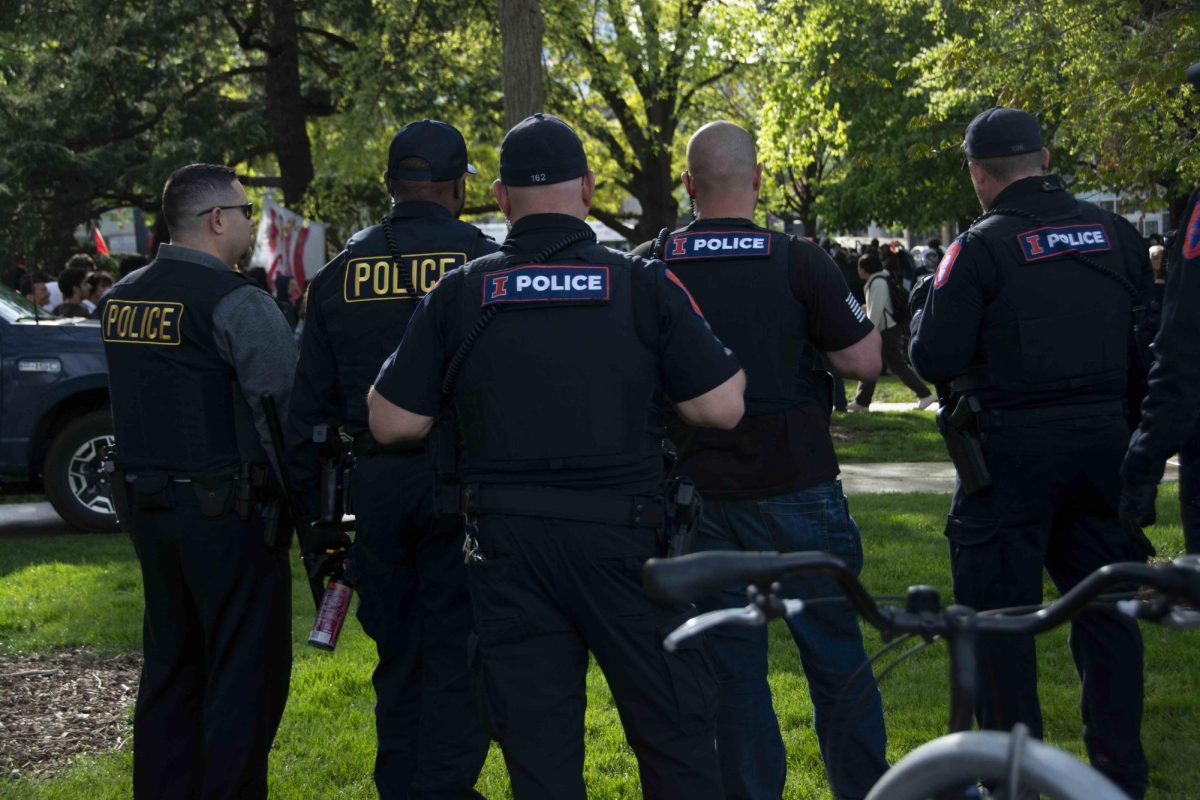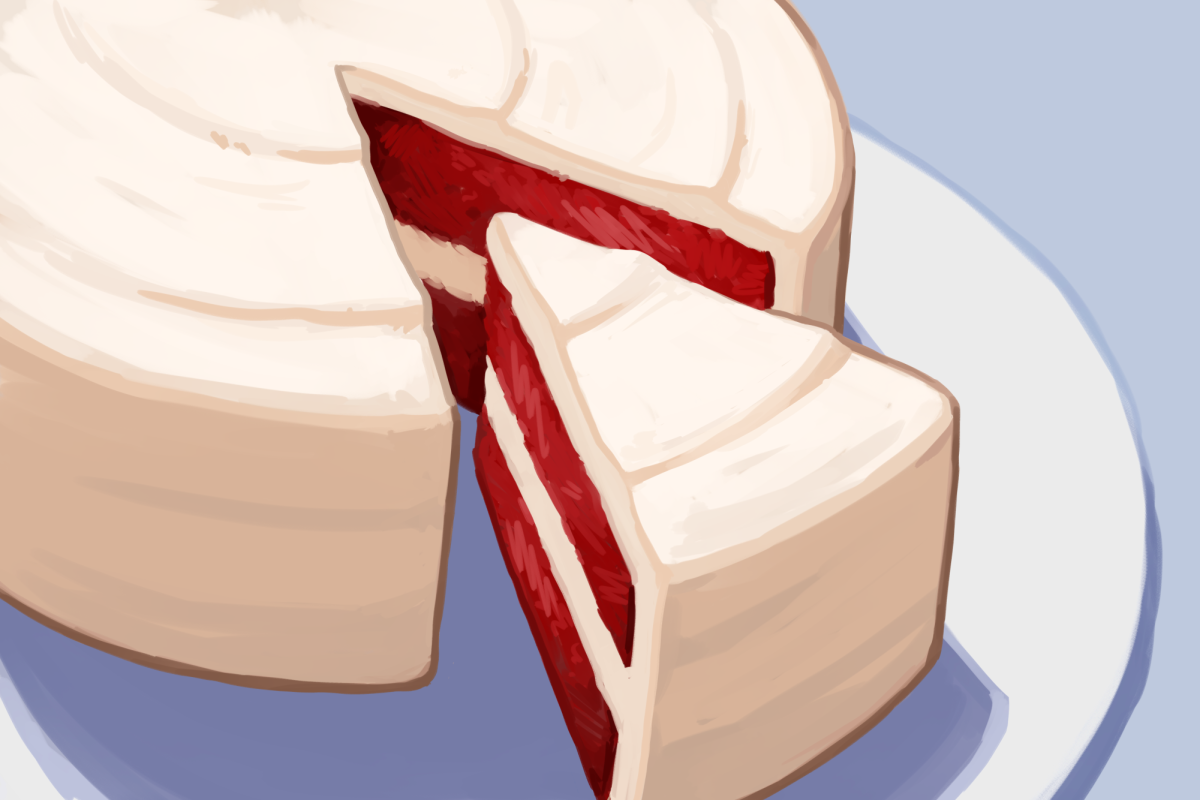Tyler Johnson hid behind a hedge. He had run away from home and all his belongings were packed in two black garbage bags. He had a pitcher of water and had not eaten all day. He planned out his next two weeks until he could live at the TIMES Center. He needed a place to stay.
On any given day in Champaign County, at least 594 people are homeless, according to the most recent survey of homeless people conducted by the Continuum of Care in August 2009. The Continuum of Care conducts this survey once every two years by contacting places where homeless individuals typically interact, including shelters and transitional centers.
“You can knock on anyone’s door,” Johnson said. “They all have their own story.”
The 21-year-old Taylorville, Ill., native is the second oldest of five and moved to Champaign two and a half years ago. He was staying with his sister in her apartment until a Monday in mid-September.
“She always threatened to kick me out,” Johnson said. “I didn’t have any peace there … So I decided to live on the streets for 12 days until I could get into the TIMES Center.”
Get The Daily Illini in your inbox!
Johnson’s mother, Tammy Allen, offered some further insight on the situation.
“They are each other’s best friends, but at the same time they are each other’s worst nightmare,” she said. “They’re close in many ways, and yet they have their arguments that I think are just regular sibling arguments.”
Following his mom’s interpretation of the conflict, Johnson left his sister’s apartment and wandered around until he found a spot he liked — the bushes in front of Temple Baptist Church in Champaign.
“It looked like a good and safe place to stay,” Johnson said. “So, I sort of settled camp there.”
While Johnson was getting comfortable behind the bushes, his well laid out plans were falling apart. The person that made Johnson’s plans go awry was the pastor of the church, Scott Boyd.
Boyd was at the church for a prayer meeting when he noticed a sleeping bag and garbage sacks behind one of the hedges along the side of the church’s wall. He said he thought it was odd, but ignored it. After the meeting, he looked back at the bushes and was surprised by what he saw.
“When we looked down the right wall of the church, we saw that there was a young man sitting in the sleeping bag,” Boyd said. “I said, ‘Wow! He wasn’t there the first time.’”
So, Boyd and church member Arthur Cox confronted the young man.
When they asked Johnson what he was doing there, Johnson responded, “I slept here last night … I need a place to live. I was living with my sister, but her boyfriend didn’t like me being there so, she kicked me out of the apartment.”
Boyd said that wasn’t Johnson’s first experience being kicked out of a family member’s home.
“His mother’s boyfriend didn’t like him being in the apartment, either,” Boyd said. “So she kicked him out of the house. He didn’t have any other place to go.”
When Allen was asked about this, she stumbled on her response.
“There was a lot of conflict,” she said. “I thought that he needed to go out and get a job and see that the world isn’t as bad as he thinks it is.”
Nonetheless, Boyd said he felt compassion toward Johnson and wanted to do something to help.
“When he said that, it about made me cry,” Boyd said. “A young man, homeless, not wanted by his mom or anyone else in this world, and he came here to the church because he thought it would be a safe place.”
Boyd called the director of Restoration Urban Ministries, Pastor Ervin Williams. Restoration Urban Ministries is a nonprofit organization that provides services to help the needy in the community transition their lives from homelessness to a sustained livelihood. The services aim to temporarily support residents in their personal and educational growth to enable them to live independent and self-sufficient lives. One such service is housing.
“I was only there (behind the bushes) one night and the next day, (Boyd) came out and saw me,” Johnson said. “He let me sleep in the church that night. He talked to the people (at Restoration Urban Ministries), and I went.”
While Johnson was comfortable with his plan, his mother and sister were unaware of it.
“He just up and disappeared,” Allen said. “I had no clue where he was at.”
The situation worsened when an unfortunate coincidence occurred. A few days after Tyler ran away, a body was found in Crystal Lake. Johnson said his family thought he was dead. When a friend of Johnson’s told Allen that her son was at Restoration, she breathed a sigh of relief.
“I was definitely relieved that he was safe,” Allen said.
During that time, Johnson was approved to move into housing within the week and became one of 78 individuals living in the ministry.
“I came here and got an apartment,” he said. “I never had my own place. So that was really cool. Just finally getting away from my mom and sister; it is so much more peaceful.”
To get that peace, Johnson had to go through some rough patches to finally end up at Restoration.
Johnson had to drop out of high school when his father lost his job.
“I had to quit going to school, so I could get a job. And I started roofing,” he said. “I didn’t sign any papers saying I was going to drop-out, I kinda just never showed back up.”
While his father is still alive, he lives in another state and is not receptive to Tyler Johnson.
“I haven’t seen my dad in a long time,” Johnson said. “Every time I talk to him on the phone, he is always drunk – always saying stuff to hurt me.”
While Johnson has dealt with some problems in his life, Williams said Johnson is a typical case for Restoration. However, when asked if Restoration seemed like a good fit for Johnson, Williams expressed his doubts. Williams said Johnson tends to be very quiet and reserved and does not take a lot of initiative.
Williams did note some good attributes of Johnson’s character.
“He listens a lot, and I think that is a good quality to have,” he said. “You have to ask him where he’s at with stuff, but he does perform all the necessary tasks that’s required of him.
Cox, however, was a little more skeptical. Cox meets with Johnson every Saturday to catch up with him and to see how he is doing.
“I have not seen any improvement,” Cox said. “I think he appreciates my coming, because he didn’t have a place to sleep or a place to hang his hat before we came along. But I’m not sure if I would be the most popular person in his repertoire if I wasn’t giving him money or assistance or helping him.”
Allen also presented some reservation on the situation.
“I am not sure it is the best place, because it seems to have a lot of rules that could conflict if he gets a job,” she said. “On the other hand, it’s got him out where he’s got to take some responsibility for himself.”
Johnson too expressed some second-guessing about his new residence.
“TIMES Center probably would have been better,” he said. “It is closer to the library and other places that I need to go. I kinda liked it there. Here, it is kinda stressful with all the stuff we’ve got to do.”
While Johnson was quick to note his added responsibilities, Williams said the work is beneficial. He said the program’s guidelines help lay out a plan that will allow the recipients to lead their own lives.
Williams said he always asks one question of his residents, “What do you hope to achieve?”
He said most residents have some idea, and that reflects on the individual’s expectations of the program.
“I’m only 21,” Johnson said. “I can still join the military or go to college. (I can) do something with my life.”





